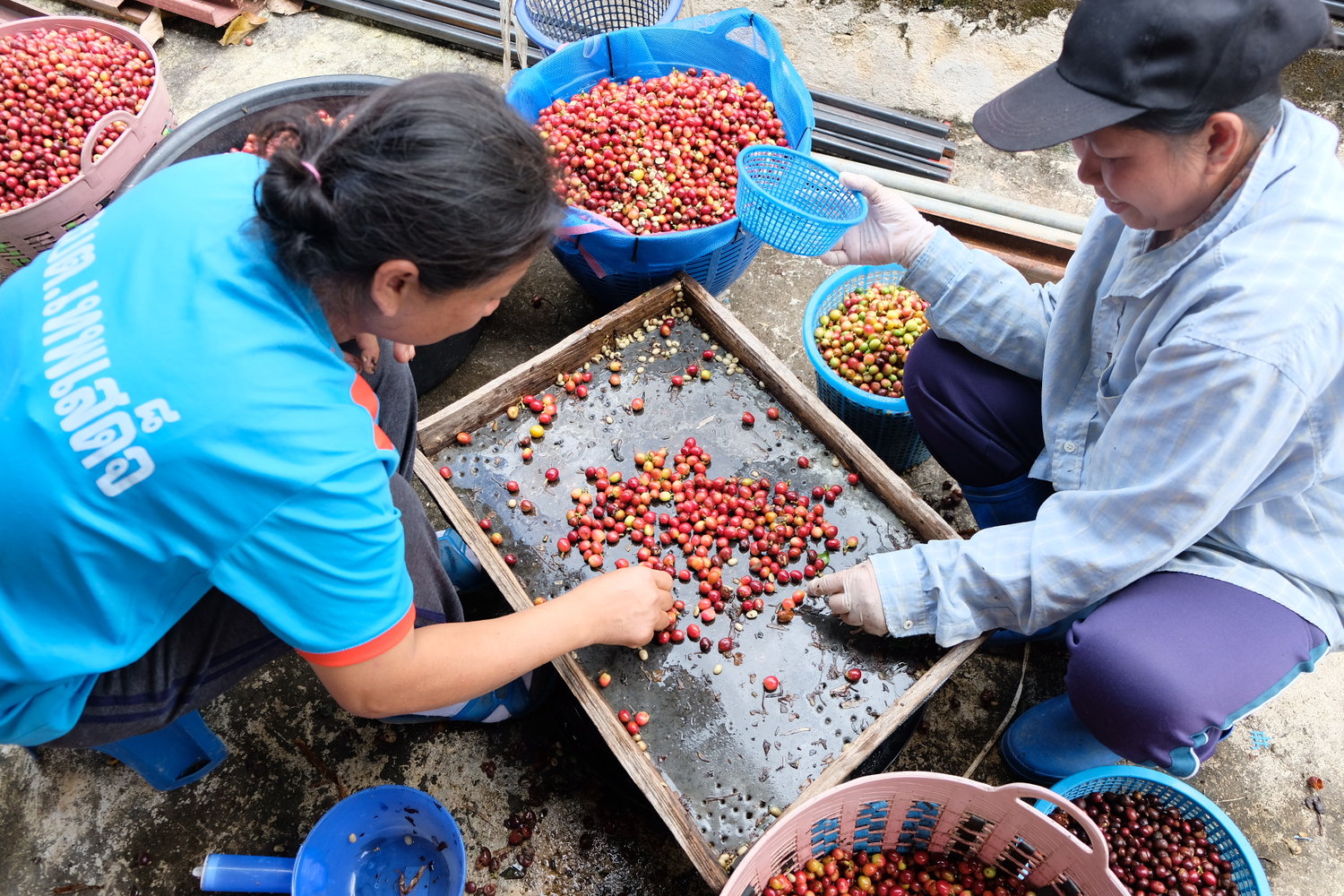.03
Our Partners
To make sure your investment creates real ecological change at the farm, we work with coffee growers who we can vouch for and have shown great entrepreneurial results already. This allows us to let them do their own monitoring and share it on social media. Some think we're naive, but our trade partners have already demonstrated that nothing is cheaper and more sustainable than a trustful relationship between equal partners.
colombia - Argote Specialty Coffee
The Argote family serves as a prime example of how local farmers can take charge of their own destiny. In 2015, everyone in their village sold parchment coffee to the Coffee Federation for standardised prices. Four years down the road, they became one of only a handful of independent exporters in the region, have their own dry mill and a strong brand that they sell for over 50% higher prices. They have now started exporting other farmers' coffees and paying them the same prices.
The premiums they receive for their coffee are great for investing in production quality, but simply not enough to pay for their long term plans to become fully organic in 2022. We couldn't think of a better 5 year pilot investment for the Circular Coffee Fund than this concrete goal.
Plot size: 53 hectares (including partner farmers)
Sustainability goals: no more chemical fertilisers and investment in a water efficient wetmill at the Lasso Argote and Salomon Muñoz families' coffee fields.
Farmers and family members impacted: ± 60
Social media: Argote Specialty Coffee (Instagram and Facebook)
peru - cepro yanesha coffee cooperative
The Yanesha coffee cooperative was founded in 2011 by 4 native Yanesha communities from the central jungle of Peru. Their dream was to organize and help their fellow coffee farmers to improve the productivity and quality of their coffee, while preserving their natural environment. Certification and improved quality have somewhat raised the average income of the Yanesha coffee farmers, but is still much too low to invest in sustainability, let alone save up for retirement.
Have fulfilled their initial dream, the Yaneshas would like to continue to improve sustainability through reforestation. With the Circular Coffee Fund’s help in installing bamboo and a mix of native and timber trees, the Yaneshas can reduce their ecological foot print and make sure their elderly are taken care of.
Plot size: 2 hectares on average (303 hectares of coffee in total)
Sustainability goals: reduce the ecological footprint of Yanesha coffee and create a sustainable income and retirement for the Yanesha coffee producers.
Farmers and family members impacted: 150 farmers
Social media: CAC CEPRO Yanesha (Facebook)
Thailand - Doi pangkhon
Coffee farming in Thailand is under threat. The feared 'coffee rust' has become a major problem, chemicals are not giving any solice, and surrounding countries are becoming increasingly competitive in the coffee industry. Ata and his sister Pupae in Doi Pangkhon have found a way to tackle both problems: they learned how to add value to their coffee by creating direct links to specialty coffee roasters and use the power of environmental friendly agroforestry practices to fight coffee diseases.
The first results are great - the shaded coffees are uninfected with disease and joint processing experimentation with partner roasters has resulted in higher value specialty coffee. In five years, with the help of the Circular Coffee Fund, they want to transform their coffee fields into healthy, agroforestry hotspots that set an example for the entire region.
Plot size: 40 hectares managed by the Doi Pangkhon cooperative
Sustainability goals: full shade on all coffee producing mountain slopes, 20% so far. Consequently, no more chemical pesticides and therefore fully organic coffee production.
Farmers and family members impacted: ± 60
Social media: Ata farm Pangkhon (Instagram)
We'll keep on adding more partners as the Circular Coffee Fund grows. Keep checking the website!


